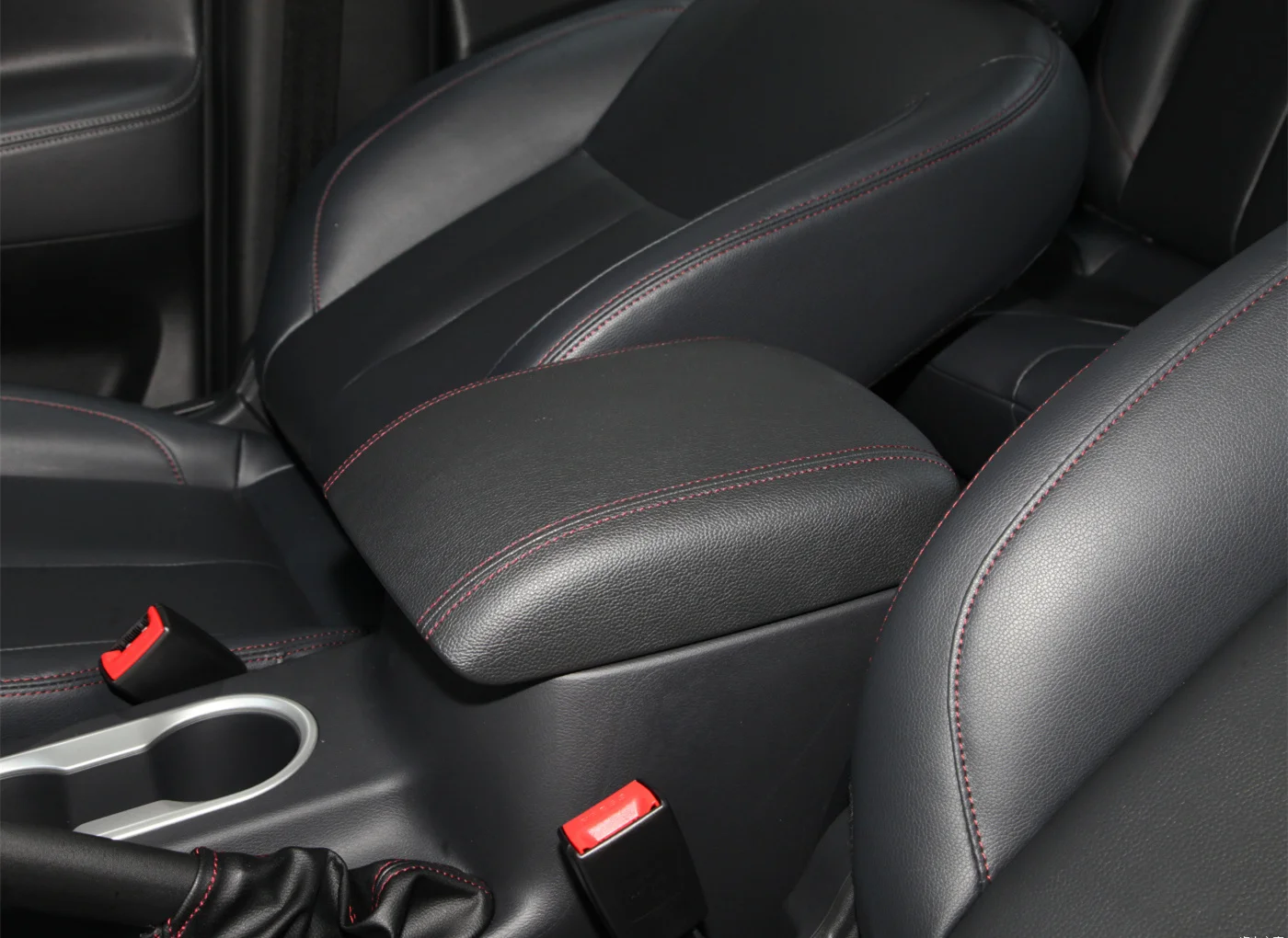Diesel Small Pickup Trucks: The Unsung Workhorses of the Road pickup.truckstrend.com
In a world increasingly dominated by large, gas-guzzling full-size trucks and compact, fuel-efficient crossovers, the diesel small pickup truck occupies a unique and highly practical niche. These versatile vehicles combine the robust utility of a traditional pickup with the surprising fuel economy and impressive torque of a diesel engine, all within a more manageable footprint. Far from being a compromise, diesel small pickups offer a compelling package for a diverse range of buyers, from small business owners and outdoor enthusiasts to budget-conscious commuters and those seeking a durable daily driver.
This comprehensive guide will delve into the world of diesel small pickup trucks, exploring their benefits, key characteristics, popular models, essential buying considerations, and the practicalities of ownership, providing you with a complete understanding of these hardworking vehicles.
Diesel Small Pickup Trucks: The Unsung Workhorses of the Road
The Enduring Appeal: Why Choose a Diesel Small Pickup?
Diesel small pickup trucks distinguish themselves through a set of core advantages that make them highly attractive in various scenarios:
- Exceptional Fuel Efficiency: This is often the primary draw. Diesel engines are inherently more fuel-efficient than their gasoline counterparts due to higher energy density in diesel fuel and the engine’s more efficient combustion process. This translates to fewer stops at the pump and lower running costs, especially for high-mileage drivers.
- Superior Torque and Towing/Hauling Capability: Diesel engines are renowned for producing significantly more low-end torque than gasoline engines of similar displacement. This robust torque makes them excellent for towing trailers (boats, campers, utility trailers) and hauling heavy payloads without feeling strained. They often punch above their weight class in terms of utility.
- Durability and Longevity: Diesel engines are built to withstand higher compression ratios and operating pressures, making them inherently more robust and durable. With proper maintenance, a diesel engine can often outlast a gasoline engine, leading to a longer service life for the vehicle.
- Strong Resale Value: Due to their durability, fuel efficiency, and utility, diesel small pickups often command strong resale values in the used market, making them a wise investment.
- Global Popularity and Proven Reliability: In many parts of the world outside North America, small diesel pickups like the Toyota Hilux and Isuzu D-Max are the ubiquitous workhorses, testament to their proven reliability and ruggedness in demanding conditions.
- Maneuverability: Compared to full-size trucks, small pickups are easier to navigate in urban environments, park in tight spaces, and handle on narrow trails, offering a good balance between utility and practicality.

Key Characteristics and Performance Metrics
Understanding the technical aspects of diesel small pickups helps appreciate their capabilities:
- Engine Displacements: Typically range from 2.0-liter to 3.0-liter, often turbocharged to enhance power and torque. Common examples include GM’s 2.8L Duramax, Ford’s 2.0L EcoBlue, and Toyota’s 2.8L 1GD-FTV.
- Torque Output: This is where diesels shine, often producing 350-500+ lb-ft of torque at very low RPMs (e.g., 1,500-2,500 RPM), which is ideal for getting heavy loads moving.
- Horsepower: While torque is high, horsepower figures might be moderate (e.g., 160-200 hp), reflecting their work-oriented nature rather than outright speed.
- Transmissions: Most modern diesel small pickups offer smooth automatic transmissions (6-speed to 10-speed), though some markets still provide manual options for purists or those seeking maximum control and simplicity.
- Drivetrain Options: Available in both 2WD (rear-wheel drive) for maximum efficiency and 4WD (four-wheel drive) for enhanced off-road capability and traction in adverse conditions.
- Payload and Towing Capacities: Despite their "small" designation, these trucks can often carry payloads ranging from 1,200 to 1,800 pounds and tow between 3,500 and 7,700 pounds, depending on the specific model and configuration.
- Fuel Economy: Real-world combined fuel economy can often range from 20-30+ MPG (miles per gallon), significantly better than most gasoline small pickups, and vastly superior to full-size trucks.
- Emissions Systems: Modern diesel engines utilize sophisticated emissions control systems, including Diesel Exhaust Fluid (DEF) and Diesel Particulate Filters (DPF), to meet stringent environmental regulations. While these systems require occasional maintenance, they are crucial for clean operation.


Popular Models and Market Overview
While the North American market has seen fewer diesel small pickup options compared to other regions, several models stand out:
- Chevrolet Colorado / GMC Canyon (with 2.8L Duramax Diesel): These American twins offered a potent 2.8-liter Duramax diesel engine option for several years, providing impressive torque and fuel economy.
- Jeep Gladiator (with 3.0L EcoDiesel V6): The Gladiator brought a powerful diesel option to the mid-size truck segment, known for its off-road prowess and strong towing capabilities.
- Ford Ranger (Global Markets): While the U.S. Ranger initially launched without a diesel, international versions have long offered robust diesel engines (e.g., 2.0L EcoBlue, 3.2L Duratorq), cementing its status as a global workhorse.
- Toyota Hilux (Global Markets): Renowned worldwide for its legendary durability and reliability, the Hilux is predominantly sold with various diesel engine options outside North America.
- Isuzu D-Max (Global Markets): Another global contender known for its ruggedness and strong diesel powertrains, often sharing platforms with the Chevrolet Colorado/GMC Canyon in some regions.
- Nissan Navara/Frontier (Global Markets): Nissan’s entry in the small pickup segment also offers diesel options in many international markets.
It’s important to note that availability of specific diesel models can vary significantly by country and region due to differing market demands and emissions regulations.
Important Considerations Before Buying
Purchasing a diesel small pickup requires careful thought to ensure it aligns with your needs and expectations:
- Intended Use: Define how you’ll primarily use the truck. Is it for heavy towing/hauling, off-roading, daily commuting, or a mix? This will influence the required towing capacity, 4WD need, and cab/bed configuration.
- New vs. Used:
- New: Offers warranty, latest tech, and peace of mind. Higher initial cost.
- Used: Lower purchase price, but requires thorough inspection of maintenance history, especially concerning diesel-specific components like DPF and DEF systems.
- Budget: Consider not just the purchase price, but also:
- Fuel Costs: While more efficient, diesel fuel can sometimes be more expensive per gallon than gasoline.
- Maintenance: Diesel engines, while durable, can have higher maintenance costs for specific parts (e.g., injectors, turbo, DPF cleaning/replacement).
- Insurance: Can sometimes be slightly higher for diesel models.
- Emissions Regulations: Be aware of local and national emissions standards. Older diesels might face restrictions in certain areas.
- Cold Weather Operation: Diesel fuel can "gel" in extreme cold. Modern diesels have fuel heaters, but using winterized fuel or additives in very cold climates is crucial.
- Test Drive: Always test drive the truck under conditions similar to your intended use. Pay attention to engine noise, vibration, acceleration, braking, and overall comfort.
Owning and Maintaining Your Diesel Small Pickup
Proper maintenance is key to maximizing the lifespan and performance of your diesel small pickup:
- Oil Changes: Use only diesel-specific engine oil (typically CJ-4 or CK-4 rated) and adhere strictly to the manufacturer’s recommended intervals, which are often shorter than for gasoline engines.
- Fuel Filters: Diesel engines rely heavily on clean fuel. Regularly replace fuel filters (often two: primary and secondary) to prevent contaminants from damaging the fuel injection system.
- Diesel Exhaust Fluid (DEF): If your truck uses DEF, monitor its level and refill as needed. Running out of DEF can put your vehicle into "limp mode" or prevent it from starting.
- Diesel Particulate Filter (DPF): The DPF captures soot. Your truck will periodically perform a "regeneration" cycle to burn off this soot. Avoid frequently interrupting these cycles with short trips, as this can clog the DPF, leading to costly repairs.
- Turbocharger Care: Allow the engine to idle for a minute or two after heavy loads or long drives before shutting it off. This allows the turbocharger to cool down and prevents oil coking.
- Quality Fuel: Always use high-quality diesel fuel from reputable stations. Poor quality fuel can lead to injector issues and DPF problems.
- Cooling System: Ensure the cooling system is well-maintained, as diesel engines can run hotter than gasoline engines.
Price Table: Illustrative Examples of Diesel Small Pickup Trucks
Please note: The prices below are illustrative estimates for new vehicles at the time of their typical sale (e.g., when the diesel option was available). Actual prices vary significantly based on trim level, options, region, dealer, and whether the vehicle is new or used. This table is for conceptual understanding only and does not represent current market values.
| Model (Illustrative) | Engine Type | Horsepower (HP) | Torque (lb-ft) | Est. Towing Capacity (lbs) | Est. Combined MPG | Est. New Price Range (USD) | Key Feature/Note |
|---|---|---|---|---|---|---|---|
| Chevrolet Colorado | 2.8L Duramax Diesel | 181 | 369 | 7,700 | 23-25 | $38,000 – $45,000 | Strong torque, good for towing, smooth ride. |
| GMC Canyon | 2.8L Duramax Diesel | 181 | 369 | 7,700 | 23-25 | $40,000 – $48,000 | Premium interior, shared platform with Colorado. |
| Jeep Gladiator | 3.0L EcoDiesel V6 | 260 | 442 | 6,500 | 22-24 | $48,000 – $60,000+ | Unmatched off-road capability, removable roof. |
| Ford Ranger (Int’l) | 2.0L EcoBlue Diesel | 170 / 210 | 310 / 369 | 7,700 | 25-28 | $35,000 – $45,000 | Global best-seller, robust and versatile. |
| Toyota Hilux (Int’l) | 2.8L 1GD-FTV Diesel | 201 | 369 | 7,700 | 24-27 | $38,000 – $50,000+ | Legendary reliability and durability. |
| Isuzu D-Max (Int’l) | 1.9L / 3.0L Diesel | 161 / 188 | 266 / 332 | 7,700 | 26-30 | $35,000 – $48,000 | Excellent fuel economy, rugged workhorse. |
Frequently Asked Questions (FAQ)
Q1: Are diesel small pickups more expensive than gasoline ones?
A1: Generally, yes. The diesel engine option often adds a premium to the purchase price due to the more complex engine technology and emissions systems. However, this higher initial cost can be offset by better fuel economy and potentially higher resale value over time.
Q2: Is diesel fuel more expensive than gasoline?
A2: Diesel fuel prices fluctuate and are often comparable to or slightly higher than premium gasoline. However, the superior fuel efficiency of diesel engines means you travel further on each gallon, potentially leading to lower overall fuel costs despite the per-gallon price.
Q3: Are diesel trucks harder to maintain?
A3: They require specific maintenance items (like fuel filter changes, DEF refills, and DPF monitoring) that gasoline engines don’t. However, with proper adherence to the maintenance schedule and use of quality parts/fluids, they are designed for longevity and reliability.
Q4: Do diesel engines last longer than gasoline engines?
A4: Typically, yes. Diesel engines are built with more robust components to withstand higher compression and pressures, leading to a longer service life if properly maintained. It’s not uncommon for diesel trucks to exceed 200,000 or even 300,000 miles.
Q5: Are diesel small pickups good for daily driving?
A5: Absolutely. Modern diesel small pickups are much quieter and smoother than older diesels. Their excellent fuel economy makes them practical for commuting, and their compact size makes them easier to maneuver and park in urban settings than larger trucks.
Q6: What about emissions from diesel trucks?
A6: Modern diesel trucks incorporate advanced emissions control systems (like DEF and DPFs) that significantly reduce harmful pollutants, making them much cleaner than older diesel vehicles. They meet stringent environmental standards in most developed countries.
Conclusion
Diesel small pickup trucks represent a compelling blend of utility, efficiency, and durability. They offer a unique solution for individuals and businesses that require the hauling and towing capabilities of a truck but desire better fuel economy and a more manageable footprint than a full-size counterpart. While they come with specific maintenance considerations and a slightly higher initial cost, the long-term benefits of lower running costs, impressive torque, and legendary longevity often make them a wise and rewarding investment. As the automotive landscape evolves, the diesel small pickup continues to prove its worth as a versatile and reliable workhorse, ready for any challenge the road or trail throws its way.
